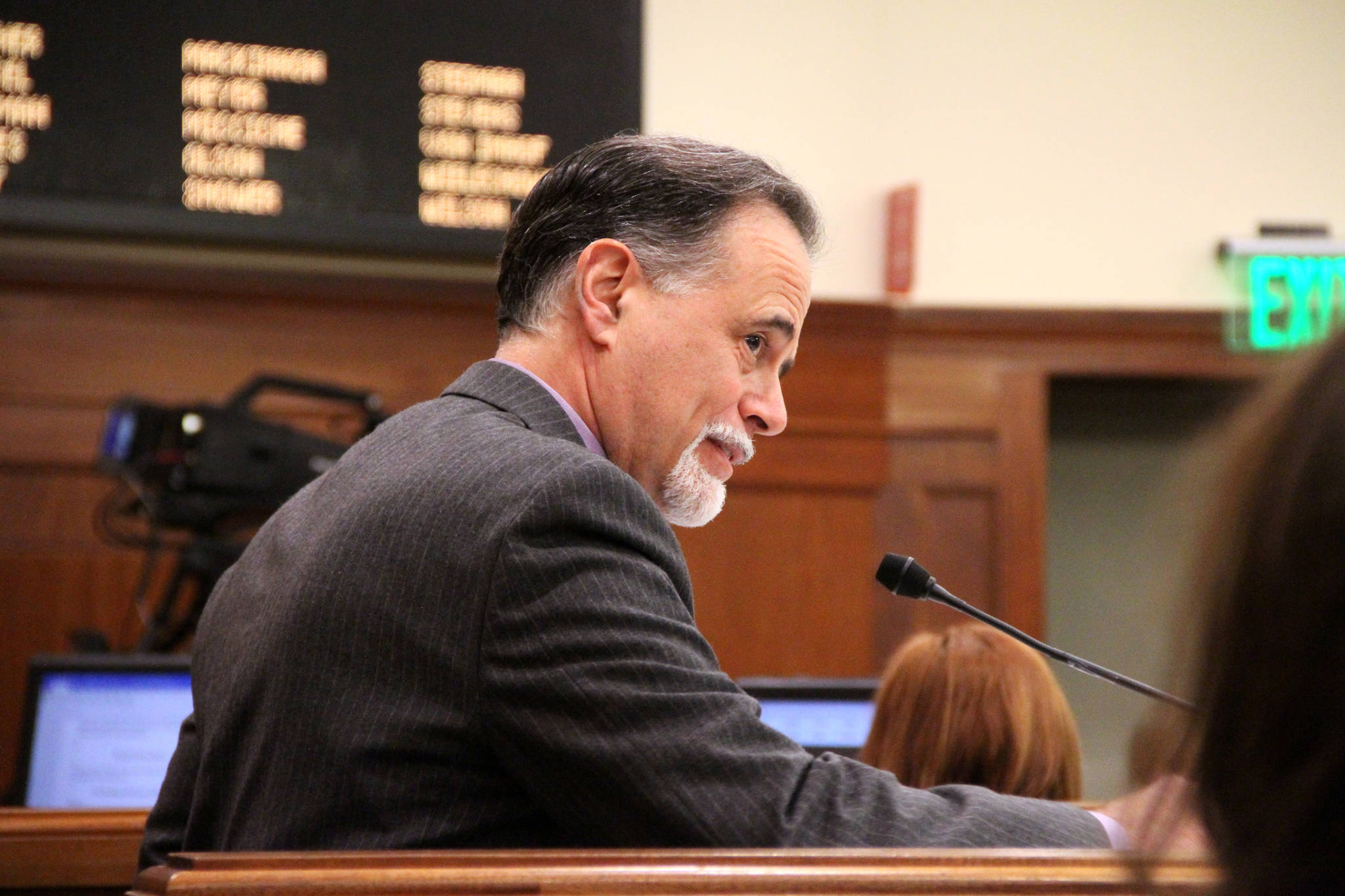Monday, Sen. Peter Micciche (R-Soldotna) filed SB 12 in an effort to eliminate “Schneider Loopholes” in state criminal code, a press release said.
The early bill-filing came a week before the first session of the Legislature, which begins on Jan. 15.
Micciche’s “Schneider Loopholes” refer to the 2018 case of Justin Schneider, an Anchorage man who served no prison time after strangling a woman unconscious and then masturbating on her.
“Last year, Alaskans were horrified to learn that a guilty violent sexual perpetrator, Justin Schneider, walked without adequate consequences,” Micciche said in the press release.
In September, Schneider was charged with one count of felony kidnapping and three counts of assault, as well as one misdemeanor count of harassment. The case ended with a deal, where Schneider pleaded guilty to one count of second-degree felony assault. Judge Michael Corey sentenced him to two years in prison, with one year suspended, but Schneider was given credit for a year under house arrest. Schneider won’t spend any time in prison.
In his press release, Micciche said the case exposed serious, long-standing shortcomings on how Alaska deals with cases of sexual assault.
“Serious crimes were ignored and an inappropriate plea deal allowed the perpetrator to serve a portion of the sentence of the single conviction at home with his family,” Micciche said in the press release. “In a state number one in the U.S. for sexual assault, we are making the statement that there will be no more free passes for perpetrators of such crimes.”
The bill seeks to improve sexual assault laws by classifying unwanted contact with semen as a sex crime, which would require perpetrators to register as sex offenders for the crime. The bill would require that strangulation to the point of unconsciousness is defined as assault in the first degree, carrying a sentence between five and 20 years in prison. The bill would also eliminate credit toward time served for electronic monitoring for sexual assault convictions.
“SB 12 will clarify for the judicial system that Alaskans stand with victims, expect progress toward a significant reduction of violent sexual assaults in our communities and those violent sexual criminals will be held accountable,” Micciche said in the press release.
The legislative session begins Jan. 15.

